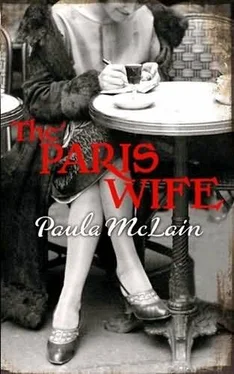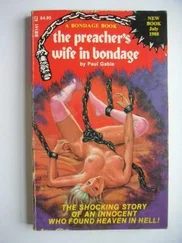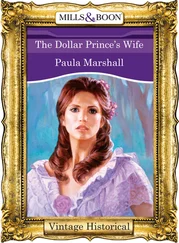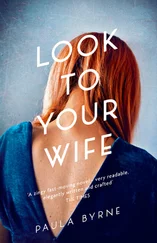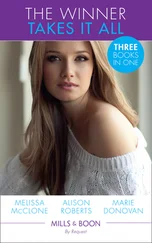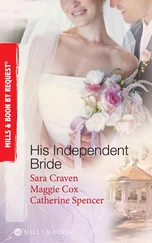You could turn on the gas and wait for the slow fog and the blue and strangled half sleep. You could slash your wrists, the razors were always there, and there were other places on the body that were even quicker, the neck below the ear, the inner thigh. He’d seen knives in the gut and that wasn’t for him. It reminded him of gored horses in Spain, the purplish coil of entrails unzipped. Not that, then, not unless there wasn’t an alternative. There was out the window of a skyscraper. He’d thought of that in New York when he was drunk and happy after meeting Max Perkins and saw the Woolworth Building. Even happy he thought it. There was the deep middle of the sea, off an ocean liner at night, with only the stars as witness. But this was terribly romantic and you had to arrange the ocean liner in advance. There was any swim anywhere if you meant to do it. You could dive down deep and stay there, way down, letting the air slip out of you and just stay, and if anyone wanted you, well, they could come and get you. But as soon as he hit on it, he knew that the only way he would really do it was with a gun .
The first time he’d seriously looked at a gun and thought about pulling the trigger he was eighteen and had just been wounded at Fossalta. He’d felt a lightning rod of pure pain take him over, more pain than he’d known was possible. He’d lost consciousness and when he came to again his legs were mush and didn’t belong to him at all. His head didn’t either, but there he was on a stretcher, waiting to be carried away by the medics, surrounded by the dead and the dying. Overhead the sky went white, a stuttering of light and heat. Screaming. Blood everywhere. He lay there for two hours, and every time he heard the shelling, he couldn’t help himself; he started to pray. He didn’t know where the words came from, even, because he never prayed .
He was blood soaked, open to the sky, and the sky was open to death. Suddenly he saw the gun, an officer’s pistol very near his foot. If he could just reach it. Everyone was dying, and it was so much more normal and natural than this pain. This hideous openness. With his mind, he reached for the pistol. He reached again and failed. And then the medics came and they bore him away alive .
He’d always thought of himself as brave, but he didn’t have a chance to find out that night of the shelling. He wasn’t any closer to knowing now. In the fall, he’d promised himself he’d do it if the situation with Pfife wasn’t resolved by Christmas, and it hadn’t been and he still hadn’t done it. He told himself then it was because he loved her too much and Hadley, too, and he couldn’t cause suffering for either of them-but they all suffered badly anyway .
Now it was summer and things were more and more impossible. He couldn’t imagine living without Hadley and didn’t want to, but Pfife was winding herself more firmly around his heart. She used the word “marriage” and meant it more all the time .
He wanted them both, but there was no having everything, and love couldn’t help him now. Nothing could help him but bravery, and what was that anyhow? Was it reaching for the gun or sitting with the pain and the shaking and the terrible fear? He couldn’t know for sure, but since that first gun, he’d reached for many. When the time came, he knew it would be a gun and that he’d simply trip the trigger with a bare toe. He didn’t want to do it, but if things got too bad-if they got very bad indeed-then suicide was always permissible. It had to be .
Along the Golfe-Juan a white road cut into the cliff side. You could ride a bicycle there for five or ten or fifteen miles, looking out at the bright boats in the quays, the rocky beaches and pebbled beaches, and sometimes a shoal of impossibly soft-looking sand. Bathers napped beneath gaily striped red-and-white umbrellas looking as if they belonged in a painting. Everything did, the fishermen in dark caps releasing their nets, the stone ramparts that sheltered Antibes from the weather, and the red rooftops of the village stacked one on the other in terraced clusters.
Pauline and I often bicycled together after breakfast while Ernest worked. It wasn’t my idea, but we were there in paradise, after all, and had to do something. The lease at Villa Paquita ran out in early June, and so we rented two rooms at the Hôtel de la Pinède in Juan-les-Pins. Bumby and Marie Cocotte were nearby, in a small bungalow surrounded by pine trees. The cure for his whooping cough had at last begun to work, and he felt a little better every day. His color had returned and he was sleeping well, and our worrying about him was almost entirely gone. The quarantine was over, but we kept to ourselves in the daylight anyway, forming our own island, while just a few miles across the peninsula at Villa America, the Murphys and the Fitzgeralds and the MacLeishes carried on as before, drinking sherry with biscuits at ten-thirty sharp and Tavel with caviar and toast points at one-thirty and playing bridge at a gorgeous blue-and-green mosaic table that had been set up on the beach for this. The image on the tabletop was of a siren with flowing hair. She balanced on a rock and gazed into the distance. At Villa America, everyone loved the siren because she seemed to be a symbol of something. They loved her the way they loved their sherry and their toast points and every moment of every ritual that wound around them like clock springs.
At the Hôtel de la Pinède, we had our own rituals. We breakfasted late, and then Ernest went off to work in a small studio off the terrace while Pauline and I rode bicycles or swam and sunned at our little beach with Bumby. After lunch we had siesta, then bathed and dressed for cocktail hour either at Villa America, in one of the terraced gardens, or at the casino in town, and no one raised even an eyebrow in our presence or said anything that wasn’t in good taste because that was the contract.
Anyone looking on from nearly any vantage point would have believed that Pauline and I were friends. She might have believed it herself. I never really knew. She certainly worked hard to stay cheerful, inventing errands for us in the village to secure freshly picked figs or the very best tinned sardines.
“Wait until you try this olive,” she would say, or whatever it was-strong coffee or pastry or nice jam. “It’s heaven.”
I must have heard her say “It’s heaven” a thousand times over that summer, until I wanted to scream. I didn’t scream, though, and that became one of the things I grew to regret.
We had two rooms at the hotel, each with a double bed and heavy bureau and shuttered windows that opened onto the coastline. Ernest and I occupied one, and Pauline kept to herself in the other-at least at first. For a week or ten days, when Pauline and I came back from bicycling or swimming, she’d excuse herself to change for lunch, but then went to Ernest’s studio instead, passing through the hotel to where a second entrance lay unmarked, as inconspicuous as a broom closet. They likely had a secret knock. I imagined that and so much more, though it made me sick to do it. When she came to lunch an hour or so later, she was always freshly showered and impeccably dressed. She’d sit down, smiling, and begin to praise the lunch or the day extravagantly. It was all so modulated and discreet I wondered if she took a certain pleasure playing her role, as if in her mind a film reel was spinning and she was a great actress who never fumbled a single line.
I wasn’t nearly so clever. More and more I found myself at a loss for words and didn’t want to hear other people talking either. Their conversations seemed false and empty. I preferred to look at the sea, which said nothing and never made you feel alone. From my bicycle, I could watch the boats moving in blue chop, or focus on the bright green scrub growing out of the ramparts with great tenacity. Somehow it stayed rooted, no matter how the wind or waves attacked, immovable as the dark moss on the rocks below.
Читать дальше
